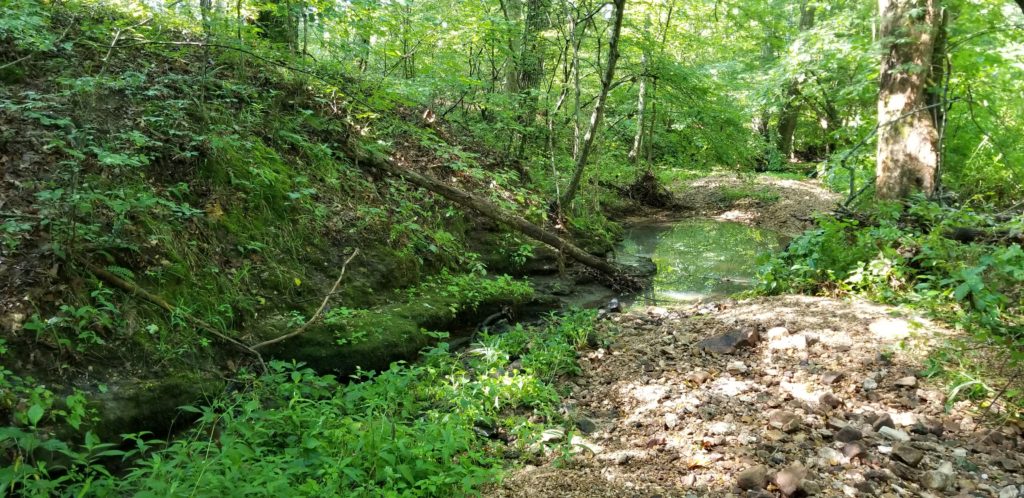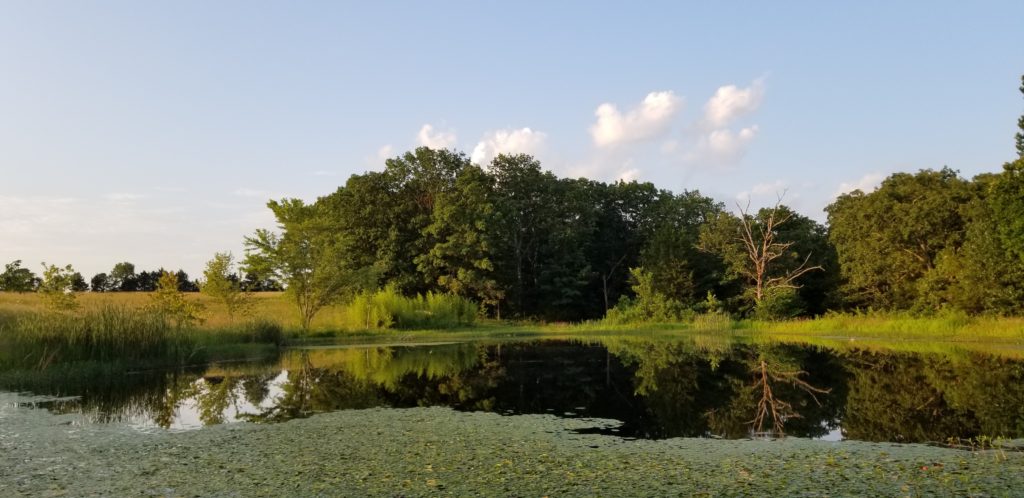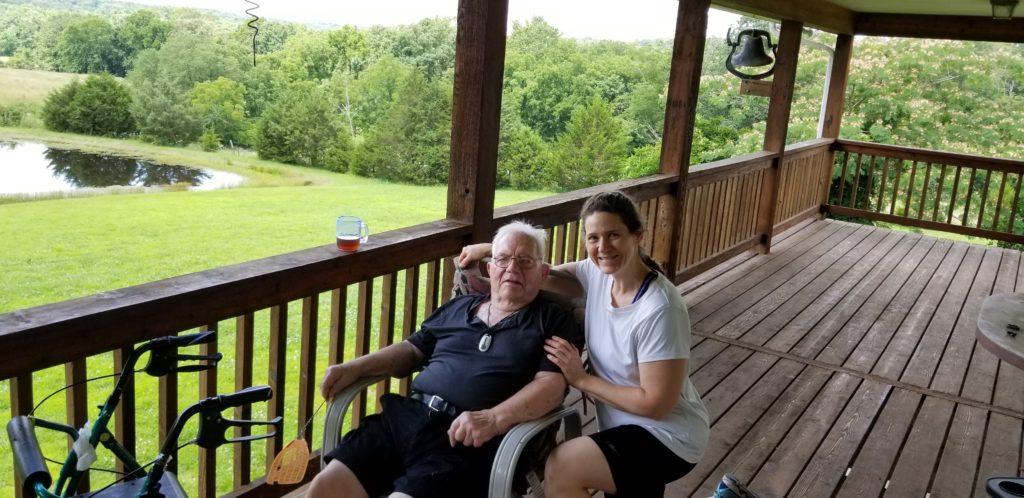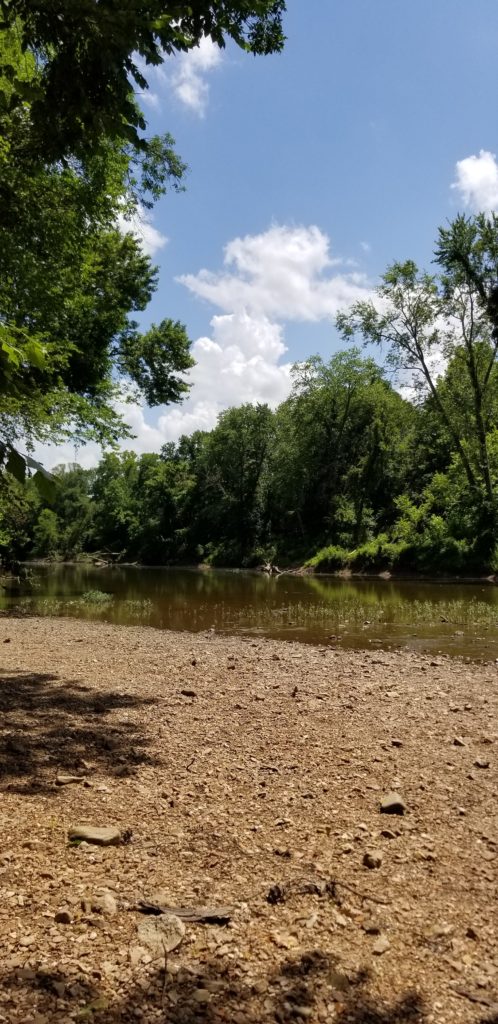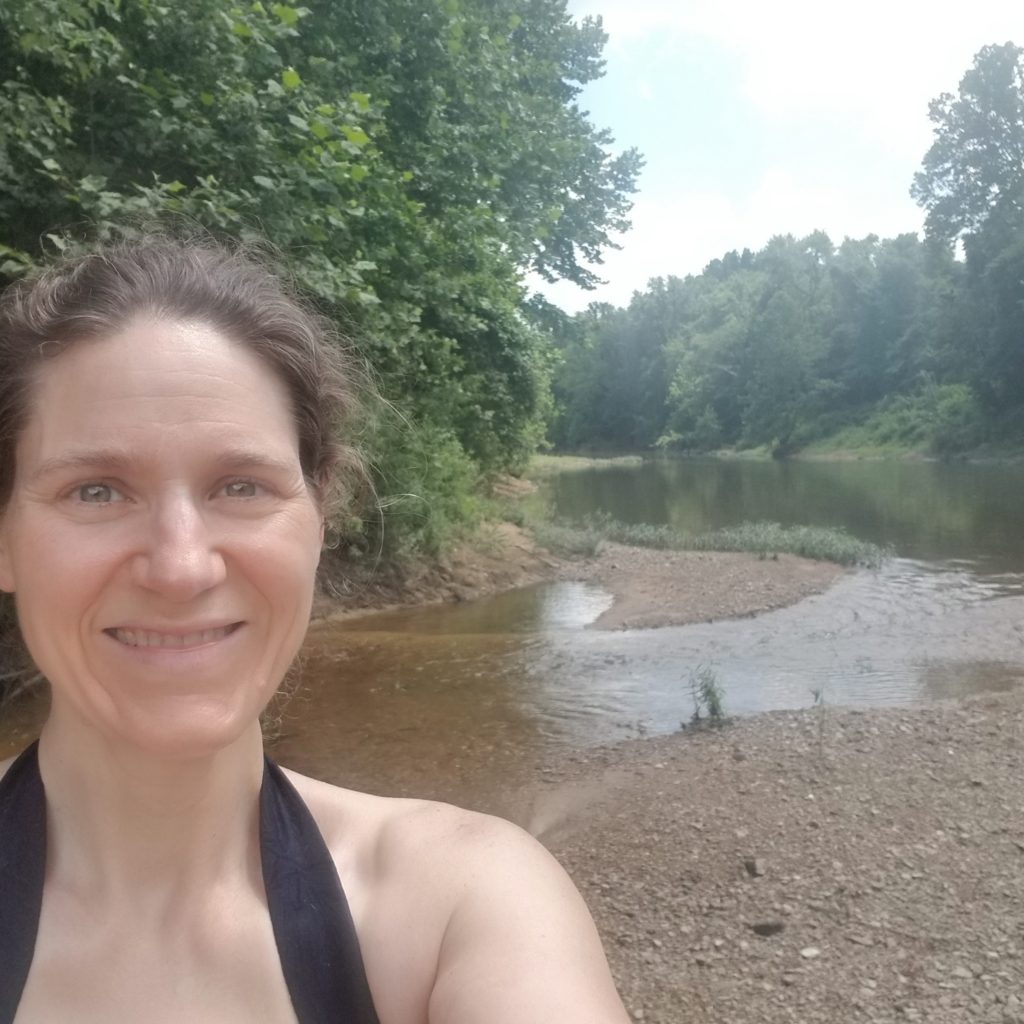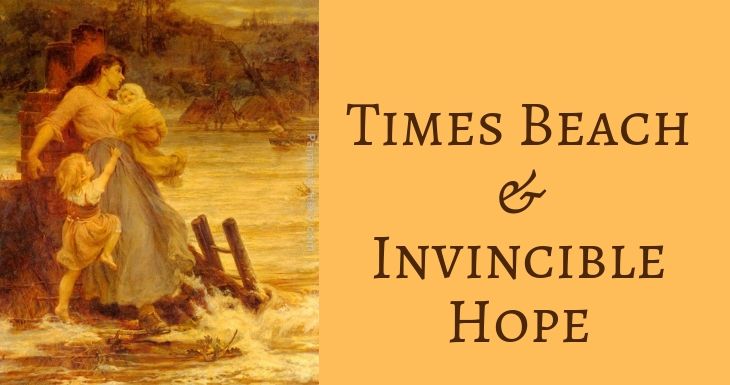
The sparkling waters of the Meramec River dance over rocks and silt as they filter through Missouri. They begin as springs east of Salem and are aqua blue as they shimmer in the sun. By the time they reach St. Louis they are distinctly darker as they pick up mud when they join the Bourbeuse River near Moselle. Still, some people would argue that they never shone brighter than they did on the shores of Times Beach in the years before heartache flooded the town.
I recently toured what is left of the resort town. I stepped inside the Route 66 state park museum and read a little bit of history and saw a few photographs. I reviewed the giant plat map which looks not unlike a big green piece of pie situated close to Eureka, Missouri. I am in the company of my friend, Stefanie, who once lived there and who has filled my heart with wonder for the tiny town that is no longer there. This small “mausoleum” is not sturdy enough to hold all the love each resident had for that small slice of heaven. No one can truly capture with words what that place meant to them. For my friend, it was simply home.
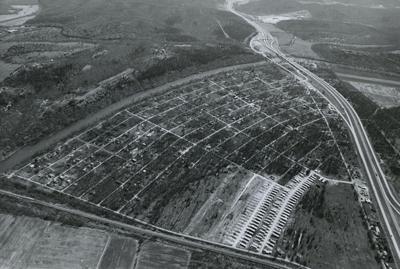
She was there in the winter of 1982 when the flood waters rolled in and tells the harrowing story of barely escaping. Their house was surrounded by the churning Meramec as it swelled over its banks. They lost everything they had, which is how they ended up at Wal-Mart—wet and soggy—in search of dry socks and shoes.
We drove under the highway as we entered Route 66 State Park—what used to be Times Beach. Cyclists and joggers passed our car on pristine, paved roads. It was a sunny, blue sky kind of day and we were thankful for air conditioning. I scanned the swampy pools next to the road for frogs while my friend tried to find where her house used to be. I tried to envision what it once looked like while my friend described her childhood, running down the hot streets to the river to swim. It was the kind of place I would have liked to live—a small town filled with relatively poor people who knew how to spend the only real currency they had in abundance; love.
Stefanie asked if I wanted to take any pictures. I said no. Everything I wanted to see was torn down years ago. I tried to imagine myself in that place when I was her age, riding my bike behind the truck that sprayed oil on the dirt roads to keep the dust down. I tried to picture the stone and brick house she once lived in but had to abandon the year she turned 13. I tried to picture her friends—the ones she loved so dearly—and her brave parents who fought not only the murky waters but the media spectacle that blocked the only way out of town and forced them to abandon their vehicle in the rising water. I felt the anger, the disappointment, and the shame she experienced in the aftermath as they tried to find a place to live. I sensed the horror of losing all sense of stability—to the point that even though she continued to go to school, she failed the 8th grade.
I could not help but think of the refugees who flee war torn areas in search of safety. Do they feel like my friend who had to grieve the sudden loss of her childhood? Do they cling to each other with hope in the face of tremendous adversity? Do they try to go back years later to try to rekindle the sense of home they lost even though there is no physical structure left to experience? For those who don’t know the story of that place, it wasn’t only the flood that ruined the town. Sadly, the former residents are still managing the pain and sorrow caused by disease and death of those they love. One of Stefanie’s close friends passed away two months ago—37 years after the floor—from a rare form of cancer caused by a terrible poison. She still cannot speak of the loss without tears.
When I think about Times Beach, I consider how God views men who prey on innocent people.
“As for the scoundrel—his devices are evil; he plans wicked schemes to ruin the poor with lying words, even when the plea of the needy is right.” Isaiah 32:7
God hates the wicked machinations of men. In fact, the bible is one long story of a God who loves justice and—finding none—stretches out his own arm to save the people he loves. I don’t intend to turn the story of Times Beach into a bible lesson. Forgive me if it comes across this way. It is only that as I crossed into that magical place, I could not help but think about what it will be one day. I was quietly clinging to the promise that Jesus makes—“Behold, I am making all things new”. (Revelation 21:5) The Apostle John’s vision of a new heaven and a new earth gives me real hope I can cling to. I believe that one day Times Beach will be a wholly clean and safe place to live. There will be picnics and hula hoops and people roller skating without fear as they embrace their friends knowing that the former things have passed away. The Meramec River will shine in exquisite beauty—a river we have never known this side of death. It will be free of pollution and trash and fear from drowning. It will be wonderful.
I suppose this kind of writing will make some people wonder about my mental capacity. Still, without the hope of God, I could not bear to think about the tragedies of this broken world. I know the Bible is just a book but I believe God is real and those really are His words. I cling to the promises he makes and hope with joy for a future where death and dying will be no more.
The sun still rises and sets over Times Beach. The Meramec River still flows over the banks and people can still fish and swim. But all the houses are gone. The streets are gone. And even the annual reunion of former residents can’t recapture the life they had in bygone years. But I take immense comfort in the words of the prophet Isaiah when he writes of this great God who created that wonderful place.
“I am the Lord, and there is no other, besides me there is no God; I equip you, though you do not know me, that people may know, from the rising of the sun and from the west, that there is none besides me; I am the Lord, and there is no other. I form light and create darkness, I make well-being and create calamity, I am the Lord, who does all these things.” Isaiah 45:5-7

